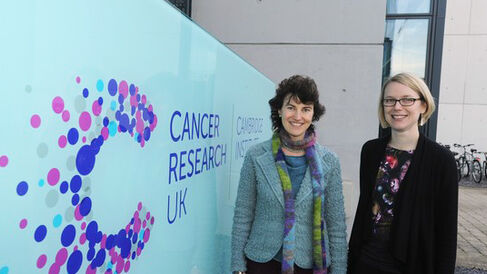
The University of Cambridge will be a partner in a £55million transatlantic research alliance to develop radical new strategies and technology to detect cancer at its earliest stage. A clinical facility will be designed and built in Cambridge to enable early phase clinical trials of diagnostic technologies as part of the International Alliance for Cancer Early Detection (ACED). Cancer Research UK (CRUK) will invest up to £40million over five years into the alliance, with US partners adding a further £15million.
ACED, announced on Monday, is a partnership between CRUK, the Canary Center at Stanford University, the University of Cambridge, OHSU Knight Cancer Institute, UCL and The University of Manchester. Their aim will be to accelerate breakthroughs in early detection of cancer, which dramatically improves a patient’s chances of survival. Existing screening programmes for bowel, breast and cervical cancers have had a major impact, along with improved public awareness and urgent GP referrals for those with suspicious symptoms. But there remains no screening tools for many cancer types and a need for new detection technologies.
Led by clinician scientist Professor Rebecca Fitzgerald and physicist Dr Sarah Bohndiek, the Cambridge ACED centre - funded with £3.3million from CRUK - will be made up of 355 members from organisations that include the University of Cambridge, the Gurdon Institute, Wellcome Sanger Institute and NHS departments.
The new Clinical Infrastructure for Research in Early Detection (CuRED) facility in Cambridge will test and validate early diagnostics, speeding up the adoption of the most promising technologies.
Prof Fitzgerald said: “Early detection is an area of research that hasn’t been given the attention it deserves. This alliance will allow the field to gain momentum, so the sum of its members will be greater than its parts.
“In Cambridge we will work on essential clinical trials that will result in faster implementation of new early detection strategies and diagnostics, making a real difference to the lives of patients.”
It is hoped that understanding the biology of early cancers and pre-cancerous states will aid early detection and treatment, and could one day enable ‘precision prevention’, where the disease is stopped from developing in the first place.
To read the full article, please visit the Cambridge Independent website.
